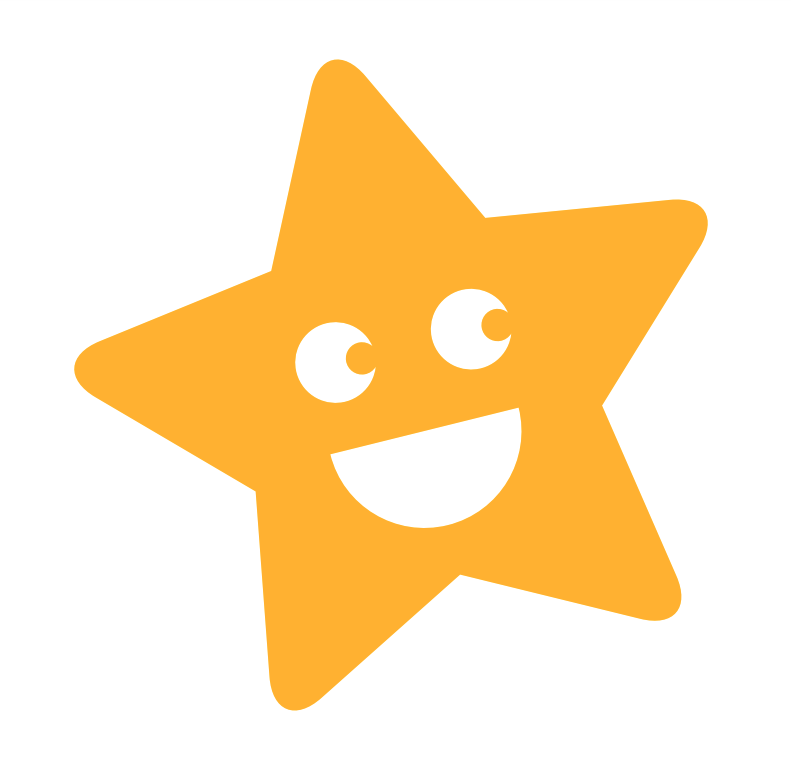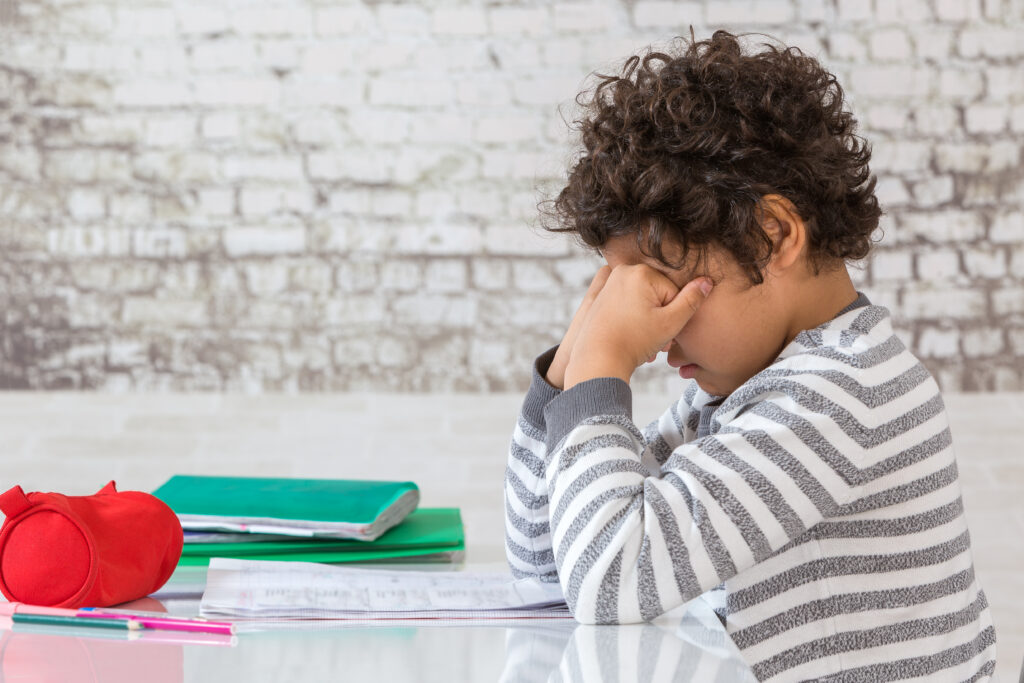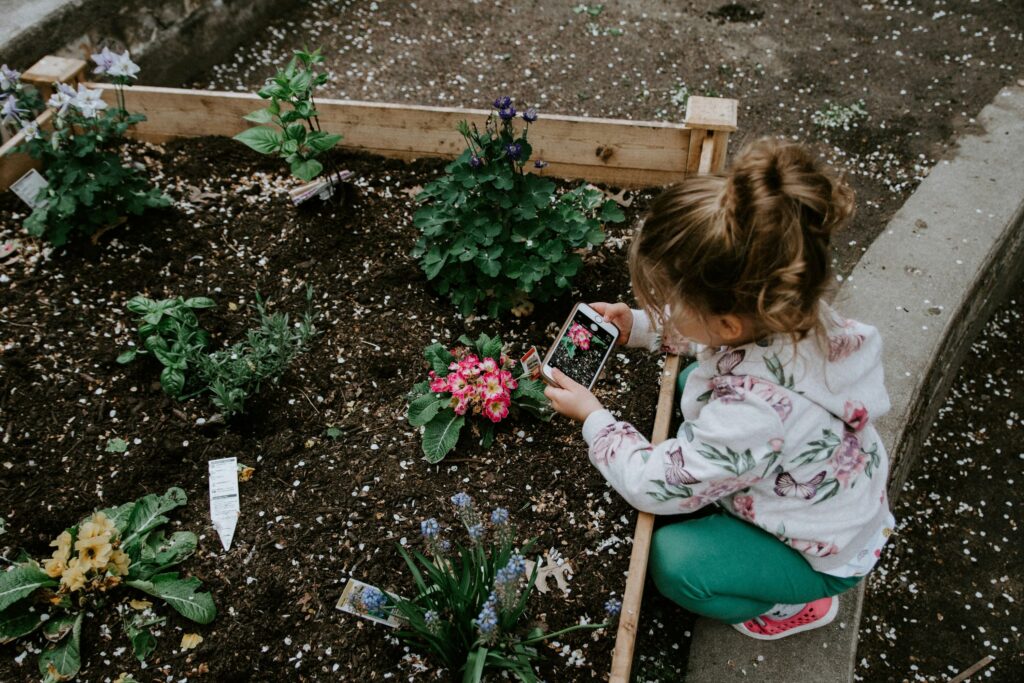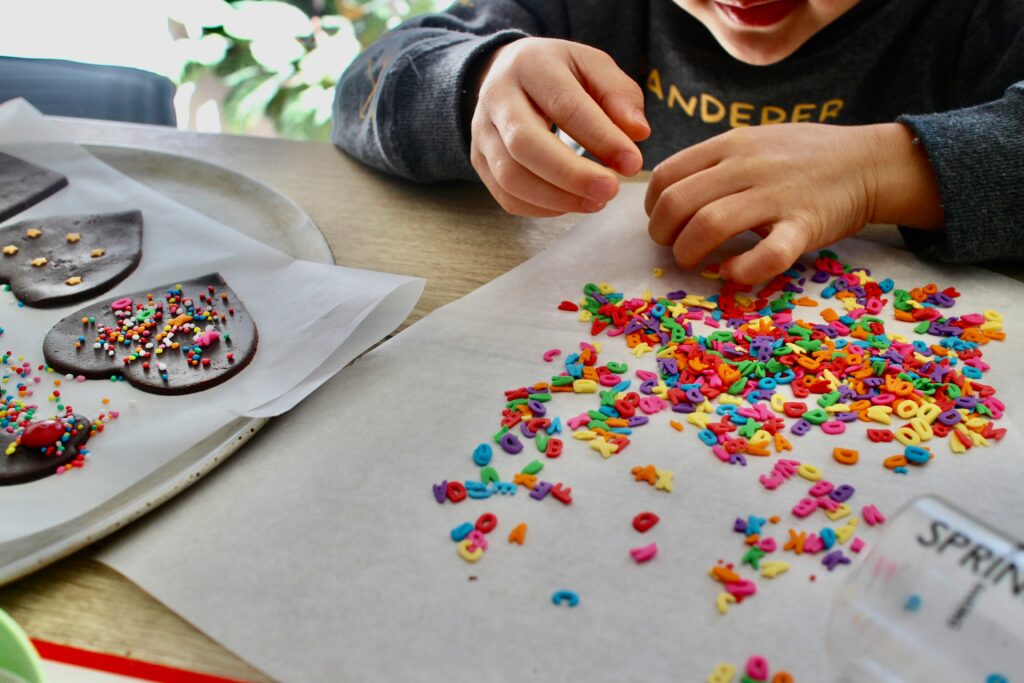

Beat summer learning loss with these key tips and tricks from educators and parents.

Author
The Doodle Team
Published
July 2024


Beat summer learning loss with these key tips and tricks from educators and parents.

Author
The Doodle Team
Published
July 2024


Beat summer learning loss with these key tips and tricks from educators and parents.

Author
The Doodle Team
Published
July 2024


Key takeaways
Summer holiday brings precious family memories and all kinds of fun, but with all that good, summer can also take away vital skills learned during the school year. A few weeks off may not seem like enough time to dampen reading, maths and other academic skills, but recent research shows time and again that those leisurely summer holiday months take a toll.
The educators on the front lines see these losses first-hand. Former Mathematics Teacher Jill Padfield writes, “Younger children in subjects like maths and reading are particularly susceptible, and can be set back significantly if they have limited access to educational resources during their break.”
Online educator Christina Scherer adds, “When children are older, the learning loss seems to mostly impact tested subjects, so maths and science.” The off months affect pupils of all ages and in all content areas, highlighting exactly how dramatic the loss can be.
However, you don’t need to let learning loss taint those happy summer months. With careful planning and the right tools, you can make moves to not only avoid learning loss but also make the sunshine times enriching and educational.
But first, what even is summer learning loss? While you may think your child might forget a vocab word here or there or lose a mathematical function, the extent of summer learning loss is much more dire.
Summer learning loss goes by many names: summer slide, summer setback, etc. And while these alliterative names make it sound fairly innocent, studies have found that the impact of testing and skills alike can be dramatic, with students sometimes losing up to 30% of educational gains from the school year.

These skills can include the content you might expect like how to complete maths problems or how to recognise literary techniques in a story, but the losses extend to vital skills like critical thinking and making inferences, too. English Teacher, Taylor Hartley, adds, “When it comes to study habits, those may diminish given the extensive time off. It may also mess with student sleep schedules, adversely impacting their learning when they return to school.”
Summer learning loss is a serious concern that affects pupils way beyond the classroom and can lead to serious achievement gaps between pupils who use the summer effectively and those who do not.
Students do not simply flush away everything they learned during the year the moment that final dismissal bell rings. Summer sliding is a process, and the better you understand the causes of this decline, the better prepared you are to counter it.
Simply, school challenges pupils in ways that the summer months can’t do on their own. The hours spent reading, practising, and engaging with educators and peers are invaluable, and even the best home environments cannot provide everything. Additionally, pupils often spend their time during the summer on less academically challenging activities like sports, video games and other leisure activities. While pupils deserve the time to relax and engage with less mentally taxing pastimes, going from hours of schooling to nothing can dramatically impact learning.
Researchers often refer to something called “faucet theory”, which refers to a metaphorical faucet of resources that runs nonstop and equally during the school year. In class, each pupil has the same teacher, the same texts, and the same tools for success. However, at home during the summer time, those less economically-advantaged fall behind because their peers have more resources at home, comparatively.
While friends take intellectually stimulating vacations or participate in summer enrichment activities, other pupils are left at home in front of the telly or the like because their families do not have the finances necessary to provide such stimulating activities. These economic differences mean that some pupils suffer much greater learning loss during the summer than others simply because the “faucet” turns off for them during those months.
Summer learning loss is a multi-faceted problem with long-reaching consequences for students.

Testing, of course, isn’t everything, but performance on standardised assessments can dramatically affect a student’s future whether that be determining graduation eligibility or admission to university. The impact of summer learning loss is most easily measured with declining test scores. While all subjects experience score flattening or decline, maths seems to be affected the most adversely since pupils are least likely to engage with those skills during the summer.
Developing minds need stimulation and enrichment, and research has found that summers devoid of educational opportunities can lead to deficiencies in cognitive development. Primary school pupils need foundational skills in reading comprehension and problem solving to set up successes later in life, and the summer slump dramatically hinders the retention of these skills.
Older students are not immune to this decline, either. The teenage brain is still developing, and with all of the emotional and hormonal changes they experience during those tumultuous years, teens need structure and consistent mental engagement.
Lastly, the off months can hinder the development of habits and skills needed for higher education and beyond. During summer, routines are often thrown into shambles due to the typically less-structured nature of summer holiday. Without set schedules and routine tasks, work ethic and focus can suffer. Especially when young, pupils need to develop and lock in these skills to find success and independence once they leave home. A few months off from practising these skills can stunt development and hold children back.
Summer learning loss can be an intimidating foe, but with careful planning and a combination of your local resources and DoodleLearning, you can ensure that your young learner thrives during the sunny summertime.
Take the DoodleLearning Summer Challenge through July and August, completing daily challenges to keep skills sharp and even win in-app badges to celebrate your victory over the summer slump. Together, we can make summer learning fun and engaging, setting up success in the next school year and beyond.

While summer learning loss can be a daunting challenge, you can tackle it right at home with a little bit of preparation and dedication. We asked educators and thousands of Doodle parents via an online survey for the best tips and tricks to make summer an enriching time. Follow these steps to ensure that you are giving your child the best chance at success.
The best way to combat learning loss is simply to keep the learning going. Teachers and parents alike recommend setting up a routine for pupils to practise core skills at set times during the day.
“Develop a study schedule,” said a parent of two, ages 5 and 10, living in North West England. “Work with your child to develop a reasonable summer study schedule that includes daily study time and tasks.”
I encourage my child to complete her Doodle activities straight after breakfast in the morning. She has been doing this for around 3 years now and it's part of her daily routine. She also goes to bed half an hour before her actual bedtime so that she can read beforehand. I feel that these times are best because they don't really interfere with the rest of the day and she can play and do other things during the day.
Parent of two, ages 8 and 18, living in West Midlands
Using tools like DoodleMaths can help create a consistent routine for kids to keep learning throughout the summer. DoodleMaths, online worksheets and learning websites were all referenced by many of our parents surveyed.
Regularly reading is a summer staple to keep children engaged and learning over the summer. Whether your children read books based on a summer reading list, use DoodleEnglish, or join a summer reading challenge at a local library, there are many ways to enrich the summer reading experience.
I have an idea for this and I plan to implement it. My children will read 3-5 books and write a summary after reading each book. The summary should include what they have learned, what their goals are for the future and what they plan to do with them.
Parent of two, ages 8 and 11, living in London

In addition to routine maths and reading practice, you can pack learning right into the summer fun. Many cities offer affordable museums and learning centres where pupils can go and brush up on their knowledge.
Visit museums, zoos, libraries, and science centres to make the young ones learning fun and interactive.
Parent of four, ages 7, 16, 18 and 20, living in London
You can also look for historical sites and nature preserves around your area to learn the stories of the men and women who shaped the world into what it is now. These fun and educational field trips are usually free or offer discounts for younger patrons.
Educational summer camps offer exciting opportunities for children to develop independence while learning all about the world around them. Some camps are day camps where the campers come home after a day of learning and activities. And for the more adventurous students, you may consider overnight camps to really help develop independence and self-reliance.
Attend a summer camp: Choose an educational summer camp that allows your child to continue learning and growing in a fun environment.
Parent of one, age 15 years old, living in North West

Spending time in the garden can provide educational exploration. Consider having children categorise all of the flowers, plants, fruits and vegetables by colour, size and shape. Or, as one parent recommends, they can count all the fruit and veg grown in the garden.
Check out our Nature Scavenger Hunt for more ideas.
We do nature trials, where we find bugs in a view finder and Google them by identifying key points.
Parent of two, ages 6 and 8, living in South East
Keeping a summer journal, where children write about their daily activities and experiences, can improve writing skills and help with self-reflection. Add a drawing or scrapbooking component for a more creative, visual approach.
Spend 15-30 minutes a day having your child write down important things about the day and his or her reflections. For example, keeping a summer journal will help your child summarise his or her growth and progress over the summer.
Parent of one, age 7, living in London
Schools and local libraries also host summer programmes and workshops for local kids to enjoy. Some places even offer complete summer school for students in need of extra support. These are often free and open to the public, so make sure to follow your local library on social media and inquire with your school about summer opportunities.
Let children participate in more meaningful activities during the holidays, summer camps, various discipline competitions, sports competitions, all kinds of speech competitions, etc., are helpful to children's learning.
Parent of one, age 12, living in South East
Arts and crafts are a hands-on, tactile way of unleashing creativity. You can also involve your child in art projects around the home, such as painting a room in the house.
These Free Maths Colouring Sheets are a fun combination of art and maths practice.
Engaging in artistic activities, such as painting, crafts or music, can promote creativity and the development of fine motor skills.
Parent of two, ages 4 and 7, living East of England
Having a board game night is fun for the whole family and develops cognitive skills. For example, Scrabble helps practice spelling and vocabulary. Or, have kids play banker in Monopoly to practise counting. Keeping score across the board is a great maths exercise. Card games like Blackjack can also be a way to practise counting.
Encourage your child to be curious about the world around them, to ask questions and find answers. Play educational games such as puzzles, board games or memory games to enhance cognitive skills.
Parent of one, age 11, living in London
Trips to the store can be a great way to get some maths practice, according to Hartley. “When you go to the grocery store, have them make change or play some common sense maths games with them, see if they can guess what the bill will be, etc.”
Some other ideas from parents include:

Baking is a creative activity that combines several skills. Reading the cookbook and writing a list of needed ingredients requires attention to detail and comprehension. Mixing, kneading dough and stirring can all help children work on their motor skills. Weighing and measuring ingredients uses maths. And, the variety of chemical reactions occurring can encourage them to learn about the science behind baking.
Summer road trips present a variety of learning opportunities, such as using the clock to see how long it takes to get to your destination. Or, reading the map and road signs along the way.
Several parents mentioned writing letters and postcards to family and friends as a way to keep up communication skills over the summer. Whether your child sends a postcard from places you visit, or they write a weekly letter to grandparents, letters and postcards are a fun way to practise writing.
Take them to interesting places. Encourage them to write postcards and letters.
Parent of two, ages 5 and 8, living in South East
At-home science experiments are a fun way to get children thinking creatively. And while there are plenty of these available at the store, you can also use what you already have to make potions, including mixing colours with water and making perfumes with garden flowers.
Several of our parents had very creative ideas on how to use maps for different activities. One parent of four living in the South West suggested using a map to choose a walk for your family. Another parent of two living in the South East said they make treasure maps for their children. Children can also create their own maps based on their home towns or places they’d like to visit with points of interest and natural features.
Studying over the summer can be more fun if you make it a social occasion. “Invite their friends over and study together,” suggested a parent of two living in Yorkshire.
Volunteering can be a way to learn about new areas and develop social skills. Animal shelters, food banks, libraries, hospitals and charity organisations can all benefit from summer volunteers.
Getting involved in community service or volunteering will not only help your child learn new skills, but also enhance their sense of social responsibility.
Parent of two, ages 5 and 8, living in London
In addition to reading, maths and science, many parents stated that they use the summer as a time to allow their children to develop new interests or expand on existing passions.
From painting and music to dance and basketball, enrolling your child in a hobby class or giving them dedicated time to hone their skills in an area of interest is educational and motivating over the summer.
I encourage and support children to develop their own interests, whether it is reading, art, music or science. Guide children to learn independently and let them choose learning content and methods according to their own interests and needs.
Parent of three, ages 7, 9 and 12, living in North West
As you incorporate these practice sessions and learning opportunities into your summer routine, add a little bit of extra excitement with rewards. Make sure to prepare some rewards to celebrate their success, a cold treat or a new toy, perhaps? Just avoid making a break from the routine a reward. A “pass” for practice can imply that the learning is work or something to be avoided, which may discourage your student from wanting to learn.
Try to plan for summer with study along with fun activities and rewards like movies or win ice cream once they finish their new learning or course.
Parent of two, ages 10 and 15, living in South East
Book a chat with our team
If you’d like to use Doodle’s browser version, please visit this page on a desktop.
To log in to Doodle on this device, you can do so through our apps. You can find out how to download them here: